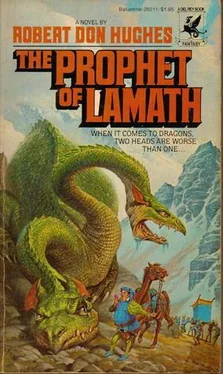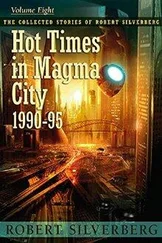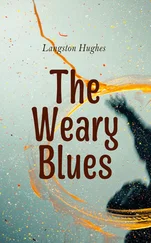Really?” The old warrior again turned his gaze away, staring at his nephews and cousins in uniform. “Me? I want to go home and plant my crop.” There was a long silence between them.
“Why don’t you?” Tohn shook his head. “Isn’t that easy. I’m a merchant, Dorlyth, and the Council of Elders—”
“Tohn, you’re a Mari! Mari to the heart! I can’t believe you mean to threaten that—”
“I’m both, Dorlyth!” Tohn exploded, then calmed himself a bit and went on, “I’m either both, or neither.” But even as he said this, Tohn realized it really wasn’t true. He thought for a long time then, reflecting on what he should tell Dorlyth and what he should withhold.
In the end he told him all. Thinking of the towheaded boy in the ranks behind him, he shared with Dorlyth every detail of the plot, and finished with this: “I just want to be left out of it, Dorlyth. I’ll neither fight with you nor against you. If my fields and harvest must be sacrificed as a plain of battle, let it be so. But I want my children to live—and I want them to live as I have, as Marts.” Dorlyth nodded, and smiled a friendly smile. “Tohn mod Neelis,” he said, “you’re the first merchant I ever met who had a conscience.” As they grasped hands to seal the peace, Pahd mod Pahd-el arrived on the field of battle, at the head of his palace guard. He would have arrived sooner, of course, but… he’d overslept.
THE CAVERN was so familiar Pelmen could have found his way in the dark, but he appreciated the illumination of the lamp. So intent was he on rediscovering his prize that the thought of creating a ball of flame to light his way never entered his mind. He was no longer a powershaper—not here. He was back in the caverns of Lamath, back in the Dragonfaith blue, and it was as if the intervening years of his travels were but dreams without meaning. The cavern looked as old as it had always looked, and the bear stench was as strong and unpleasant as ever. Truly, it could have been yesterday that he last closed the book and wound his way out of the subterranean maze to dinner.
He slipped quietly around a comer and went down to his knees to enter a narrow tunnel, pushing the light before him as he wiggled through on his belly. Then he stood, holding the lamp above him to survey the room that had been his study for so long, so many years ago.
A natural shelf of rock had served as his desk, a small stool as his seat. He tested his weight on the stool carefully and found it sturdy still, then reached into a crevice on the wall and withdrew a case of beaten metal. There was no lock on the box. He nipped it open quickly and pulled from it the leather-bound volume that had been uppermost in his mind since the moment he had again laid eyes on the monastery. He placed it on the shelf and hung the lamp on a peg. Then he opened the book and began to read, translating the strange characters into thoughts.
Glorious things. A world of strange names, but easily recognizable events. People who so far preceded him in linear time as to have no connection to the reality of the 204 present—but who nevertheless were people, just as he, whose lives had intersected with one another and with catastrophe. People who had experienced life, and struggled to prolong it.
He skimmed through material already read and pondered, renewing his memory of the whole by dipping more deeply into selected sections. He came at last to the place where he had left off reading, to ideas and symbols that had so threatened him that he had fled the monastery and Lamath. Tears sprang to his eyes as of old, tears of frustration and despair. For each passage read only deepened his conviction that the words spoke of him. How could it be, he asked himself—and Pelmen realized anew the presence of the Power in his tiny cell, answering simply, “It is.”
“Then why do I constantly talk of choice?” Pelmen asked glumly of the wall, and he was startled by the way his words echoed out into the passageway behind him. He suddenly felt very tired. Unhooking the lantern from the wall, he walked to the narrow entrance. Before he stooped, he turned and spoke again, spoke aloud, spoke to the book that still lay open on the rock.
“I already said that I would!” Just that. Then he knelt once more, and was crawling out of the passageway.
“Where is she? She was told to be here at midday!” The speaker was a young man of twenty-five, very intense of face and bearing. His garment was so rich with costly jewels one could say it was encrusted with them. It was a very heavy robe, and noisy when he paced like this. It was far too long for him, and the hem dragged the floor. Emeralds clacked along the mosaic tile with every step he took. It had been thrust upon him, along with the sapphire hood of office and the keys of dominion, with the untimely passing of his father less than a month before. He was Naquin, High Priest of the Unified Dragonfaith—and he was scared senseless by the suddenness of his rise to power. One day he had been a slightly tipsy poet. The next he was spiritual father to a nation. “She calls herself Priestess! Who made her Priestess?”
“She says she was made so by the Lord Dragon him206 The Prophet of Lamath self…” answered a voice from a row of attendant advisors. There were nine of these, all shrouded in shades of blue. Naquin could see none of their faces.
They were his anonymous advisors, chosen from obscurity by each separate branch of the Dragonfaith. It was the tradition that they remain forever unknown to the High Priest they advised, so that none would be favored over the others and so that the Priest would feel no political compulsion to listen to any one. He, of course, could do as he chose in any case, whether it suited his advisors or not. The advisors followed Naquin throughout the day, commenting as a chorus on his every action, offering advice freely, whether asked for it or not. Naquin was sure they were plotting to drive him crazy.
“That’s absurd!” Naquin shouted. “The dragon cares nothing for priests or priestesses, he cares nothing about our faith!” There was a chorus of tongue clicks and murmurs of “shame,” but no truly violent verbal reaction. Nothing like the response Naquin got when he called Vicia-Heinox an overgrown gecko.
“Whatever your evaluation of the woman’s authority, you must confess that her influence with the people warrants her claim to being Priestess.”
“I don’t have to confess anything to you parasites, I wish you would get that through your heads. Assuming you have heads under those veils. I honestly don’t see how you get around. Don’t you trip over things in the dark?”
“No,” the answer came back from several directions, but the idea was already planted in Naquin’s mind. He would have rocks cemented into the floor throughout the temple, rocks that would rise two or three inches above the level of the tile. It would do him good to watch one or two advisors go down in a whirl of vestments as they scurried to keep up with him.
“She is come,” someone said, and Naquin glanced up to see the woman gliding toward him. Her robe skimmed the floor before her, giving the illusion that she floated rather than walked.
“More blue,” Naquin sighed. “Doesn’t anyone here ever wear anything but blue?”
“‘It is the color of the water—’”
“‘The color of the sky—’” began the chorus, quoting the ancient lines regarding the sacred color.
“All right, enough!” Naquin snorted, stamping his foot. “Leave us!” he commanded imperiously, and his nine naggers obediently left the room. Naquin surveyed Serphimera with a pained expression, and said, “I suppose if this movement of yours gets any larger, you’ll be wanting to make it ten?”
Читать дальше











